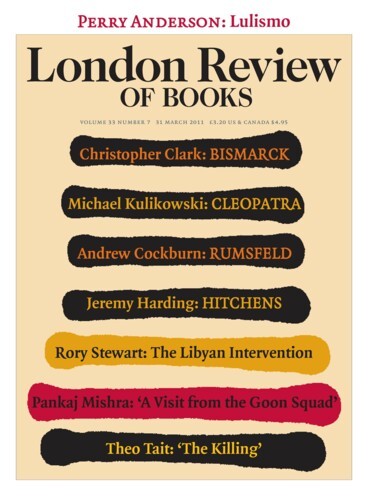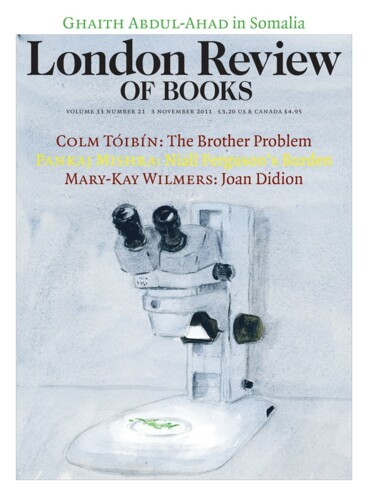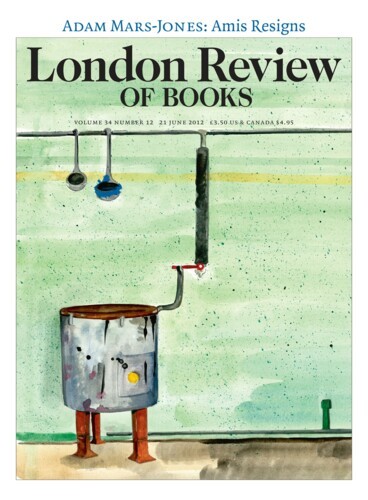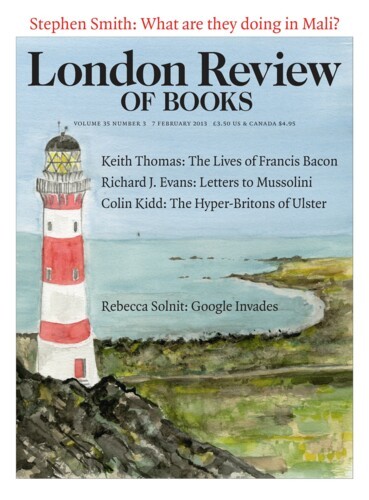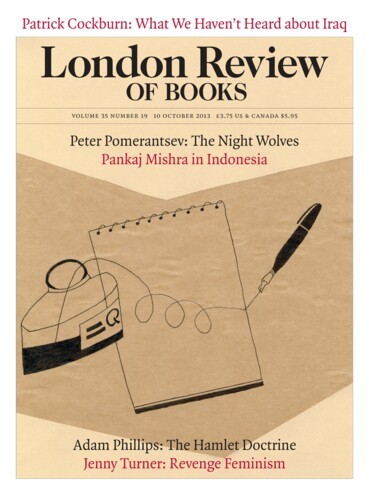Modernity’s Undoing: ‘A Visit from the Goon Squad’
Pankaj Mishra, 31 March 2011
‘America created the 20th century,’ Gertrude Stein wrote in The Autobiography of Alice B. Toklas, ‘and since all the other countries are now either living or commencing to be living a 20th-century life, America having begun the creation of the 20th century in the sixties of the 19th century is now the oldest country in the world.’ She meant, quite reasonably, that America was the oldest country in the world because it was the first to be modern. By 1933, Stein had already witnessed the industrialisation of America and the new technologies of standardisation and control unleashed by Fordism and Taylorism. Had she lived longer into the 20th century, one can only imagine what she would have made of the many organisation men, hidden persuaders and lonely crowds still to come, or of the other ideological prisons created by the national security state and the Cold War.
